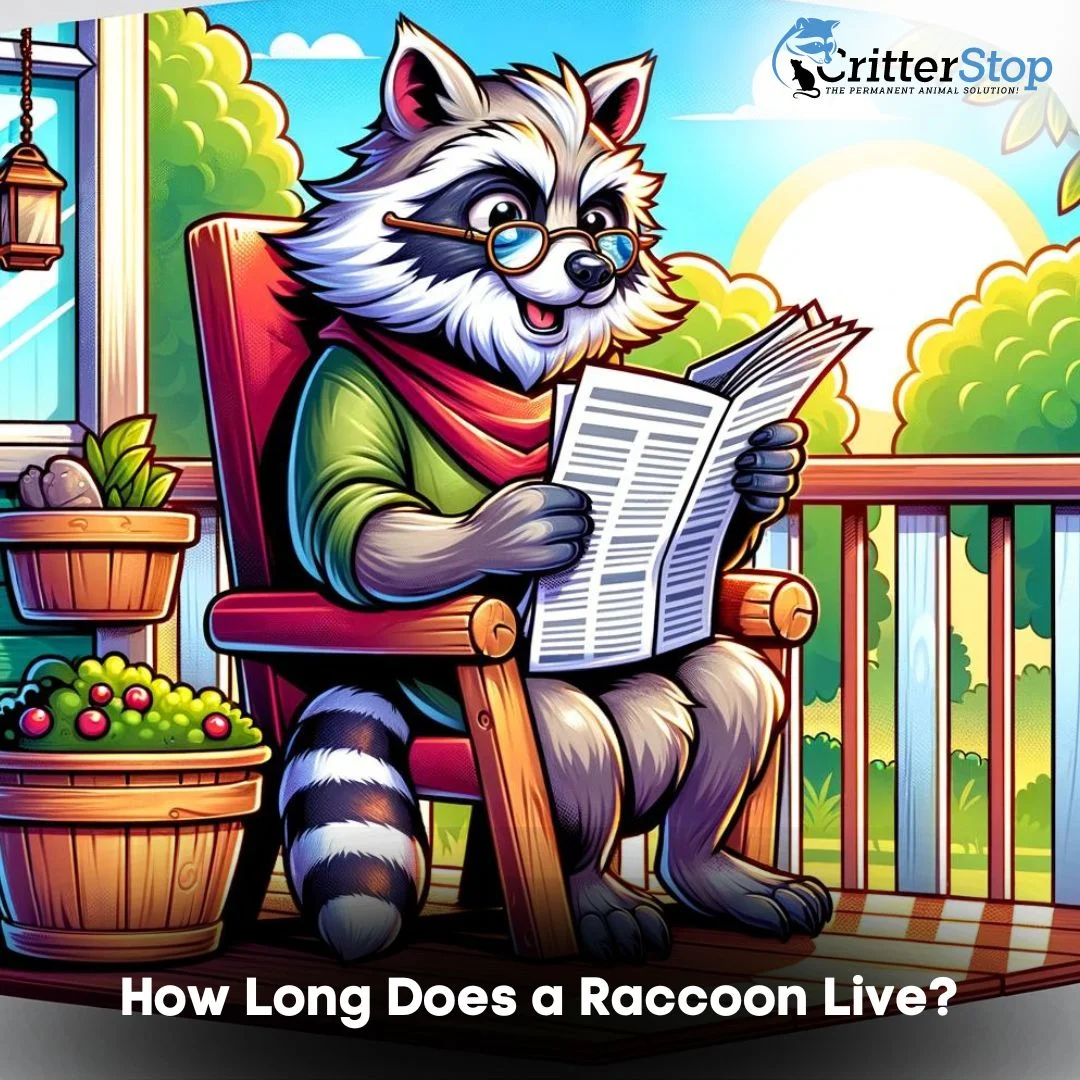
Known for their peculiar black mask and ringtail Raccoons are a very distinctive wildlife, but how long do they actually live? This can vary of course, depending on a number of factors, including genetics, habitat, and human intervention. In the next blog, we can explore the lifespan and its average of a raccoon and the factors that can impact their longevity.
On average, raccoons in the wild live for 2-3 years. But, when in captivity raccoons can live up to 20 years. This significant difference in lifespan is due to the fact that wild raccoons face a variety of challenges that captive raccoons do not, such as predation, disease, and competition for resources.
Despite their relatively short lifespan, raccoons are highly adaptable, they can survive and adapt in various environments that go from forest and wetlands to urban areas. Understanding the lifespan of a raccoon can teach you about how they’re creatures that are not only fascinating and interesting, but to understand the challenges faced in the wild.
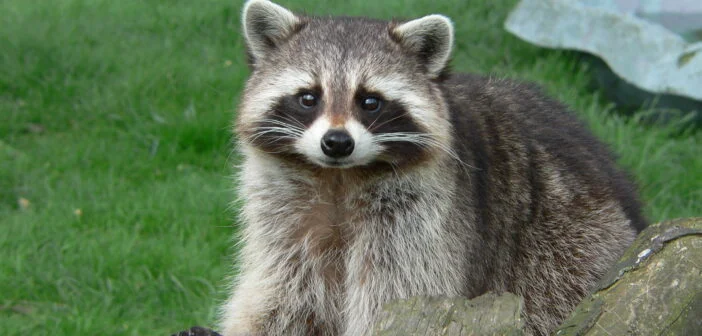
Raccoons have a relatively long lifespan compared to other small mammals, but their life expectancy can vary depending on several factors. In the next section, you will read some of the characteristics that affect the lifespan of raccoons:
Young raccoons are particularly vulnerable to predation, and their mortality rate is high. Some of the natural predators of raccoons include coyotes, foxes, bobcats, and large birds of prey. Adult raccoons are less vulnerable to predation, but they can still fall prey to larger predators.
Weather conditions can also affect the lifespan of raccoons. Very cold and difficult winters, with lots of snow can make it difficult for raccoons to find food and water, which can lead to starvation and dehydration. On the other hand, hot and dry summers can also be challenging for raccoons, especially if there is a shortage of water.
The availability of food and water is crucial for the survival of raccoons. Raccoons are omnivores and can eat a wide variety of foods, including fruits, nuts, insects, small animals, and solid food. However, they are also opportunistic feeders and will scavenge for food in trash cans and other human-made sources.
Disease and parasites can also affect the lifespan of raccoons. Raccoons can carry various diseases, including rabies, distemper, and leptospirosis. Parasites such as ticks, fleas, and roundworms can also cause health problems for raccoons.
Overall, the lifespan of raccoons can range from 2 to 3 years in the wild to up to 20 years in captivity. The lifespan of baby raccoons is particularly vulnerable, and they have a high mortality rate. Female raccoons typically have a longer lifespan than males, and sexual maturity is reached at around 1 year of age. Around 63 days is the normal pregnancy or gestation period, and they typically give birth to litters of 3 to 5 babies.
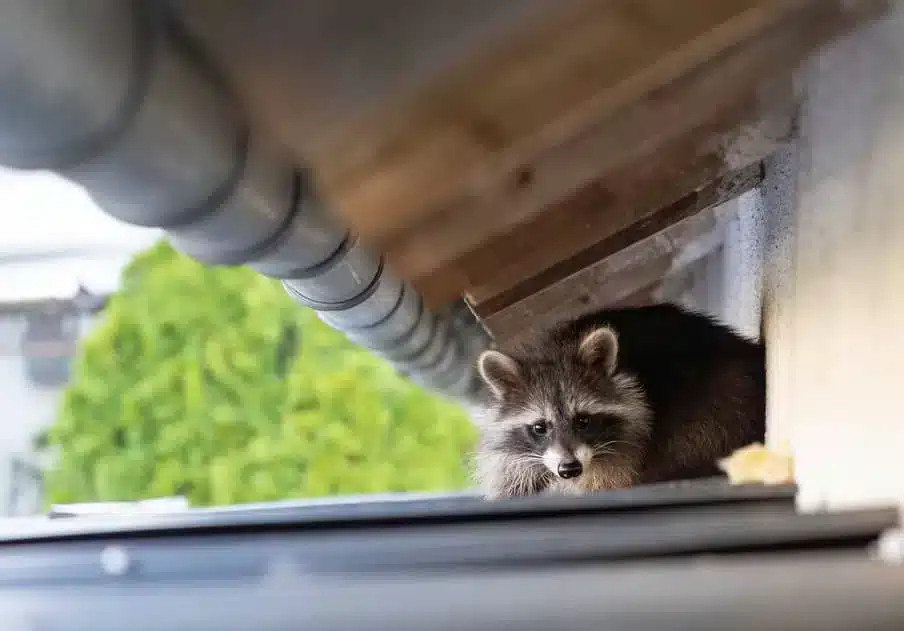
Raccoons are medium-sized mammals that are commonly found in North America. Widely known for the “mask” or black eyes and ringed tail. Raccoons are adaptable creatures that can live in a variety of habitats, including urban areas and large cities. They eat almost everything, since they’re omnivores, this varies from insects to fruits and vegetables, as well as raiding trash cans for food.
The average life span of a wild raccoon is around 2-3 years. However, some raccoons have been known to live up to 5 years in the wild. The life span of a wild raccoon can be affected by a variety of factors, including disease, habitat destruction, and predation.
Raccoons that are kept in captivity have been known to live longer than their wild counterparts. The average lifespan of a captive raccoon is around 5-6 years, with some raccoons living up to 20 years in captivity. However, captive raccoons can also be affected by a variety of factors, including diet and living conditions.
In conclusion, the average lifespan of a raccoon varies depending on whether they are living in the wild or in captivity.Normally around 2-3 years is the life of a wild raccoon, captive raccoons can live up to 20 years. Factors such as disease, habitat destruction, predation, diet, and living conditions can all affect the lifespan of a raccoon.
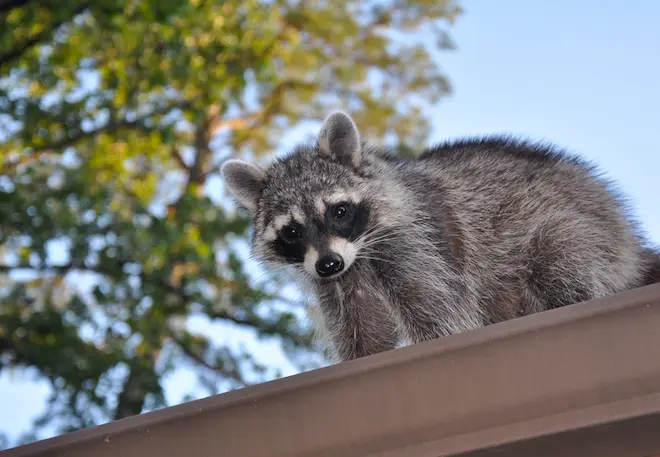
A raccoon's life span can be affected by a variety of factors, including predation, human interference, and disease. Coyotes, which are one of their most sworn predators, pose a threat raccoons, as can humans who may hunt or kill them. Additionally, raccoons can carry diseases such as roundworm, which can be fatal.
On average, raccoons live between 2-3 years in the wild. However, raccoons in captivity can live up to 20 years. This discrepancy is likely due to the fact that captive raccoons do not face the same threats as wild raccoons, such as predation and disease.
Overall, while raccoons may have relatively short life spans in the wild, their longevity can be extended in captivity. Due mind, that raccoons can carry diseases that can be harmful to humans and other animals, caution should be exercised when interacting with them.
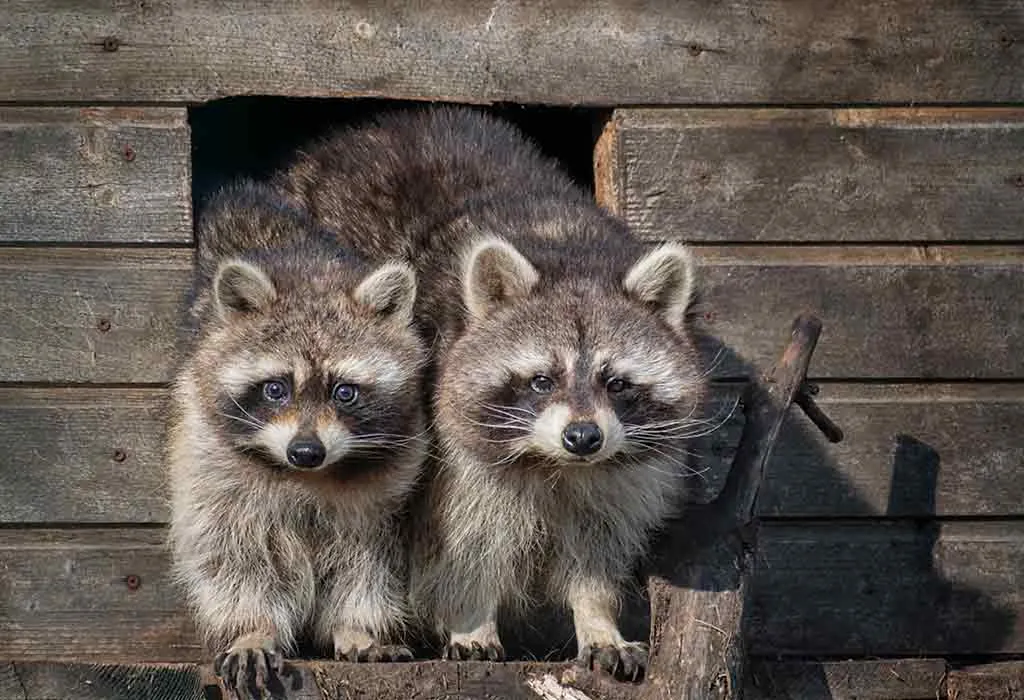
Around 2-3 years is the average lifespan of a wild raccoon. However, some raccoons have been known to live up to 5-6 years in the wild. This of course can be affected by various factors such as habitat, food availability, and disease.
One viral disease that affects the nervous system of mammals, including raccoons and its dangerous to humans, it’s rabies. Rabies can significantly reduce the lifespan of raccoons, as infected raccoons may die within a few weeks of contracting the disease. However, not all raccoons infected with rabies die, and some may survive for a few years.
The oldest raccoon on record lived up to 21 years in captivity. However, the lifespan of a raccoon in the wild is generally shorter than in captivity due to various factors such as predation, disease, and environmental factors.
Yes, the habitat can impact the longevity of raccoons. Raccoons living in urban areas tend to have a shorter lifespan than those living in rural or natural habitats. This is because urban raccoons are more likely to encounter human-related threats such as traffic accidents, poisoning, and trapping.
Several factors can contribute to a lower life expectancy in raccoons, including disease, predation, habitat loss, and human activities such as hunting and trapping. Environmental pollution and food scarcity can also affect the lifespan of raccoons.
Raccoons can be domesticated, but it is not legal in all states. Domesticated raccoons tend to have a longer lifespan than wild raccoons, as they are protected from natural threats and receive proper nutrition and medical care. However, domesticated raccoons can still be affected by diseases and other health problems.
At Critter Stop our especial methods for critter removal are not only humane but based on your needs, you can Contact Us or Call us at: (214) 234-2616 and one of our specialized agents will gladly support you on helping you and guiding you on the process to remove raccoons or any other critter.
Visit our Critter Library and learn more about our furry friends